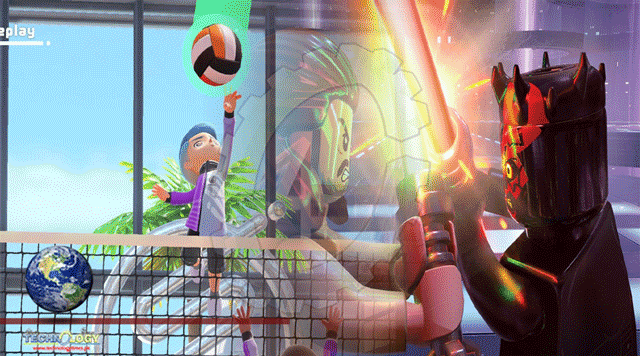When the publisher announced Nintendo Switch Sports last year, I had all but lost hope. I’d assumed that if Nintendo wanted to leverage the Wii Sports formula.

In the mid-2000s, Wii Sports was the biggest game on the planet. If Activision, EA, or Ubisoft had published the minigame collection, we would have a dozen sequels and a reboot by this point — maybe an animated show on Nickelodeon, too. For better or worse, Wii Sports is a Nintendo franchise, so instead, we got one sequel, a remake, and a decade of radio silence.
As a fan of the title, I was disappointed every time Nintendo completed a press conference or Nintendo Direct without mention of motion-controlled bowling. But as an editor who has covered this beat since the days of the Wii, I understood the business logic of it all. Nintendo has so many beloved studios that they could cannibalize each other if every series got the sequels fans felt they deserved.
So, I waited. And I waited. And I waited.
When the publisher announced Nintendo Switch Sports last year, I had all but lost hope. I’d assumed that if Nintendo wanted to leverage the Wii Sports formula, it would have produced another pack-in for the Switch. I was wrong in every way.
As the sales numbers (and empty shelves at my local Target) show, Nintendo didn’t need a pack-in game to sell the Switch. And where Wii Sports helped sell Nintendo Wiis, the Switch’s success has the potential to make Nintendo Switch Sports a colossal hit. Just this year, the Switch passed the Wii in total sales, zipping past 100 million units sold. Which is to say, the potential audience for Nintendo Switch Sports is gargantuan. And should Nintendo Switch Sports do the classic Nintendo game thing, amassing huge sales numbers over multiple years, then the game will keep the Switch relevant as it wades into the golden years of its hardware life cycle.
Once again, Nintendo has proven that patience is a virtue. We saw a similar situation last year with Metroid Dread, a project that had bounced in and out of development since 2005. Whether the publisher waits for the right moment to revive a series, or keeps a project in development hell, the end results are the same: a sustained quality that its peers haven’t matched (and likely never will).
Until recently, the quote “a delayed game is eventually good, but a rushed game is forever bad” was misattributed to Nintendo icon and Mario creator Shigeru Miyamoto. It’s much more likely, however, that the quote was just a common phrase across the games industry, the sort of aphorism that helps creatives push back the accounting team an extra month or two. I prefer the thought that Miyamoto didn’t coin the phrase, because that would mean that every major publisher in the games industry knows this mantra to be true. Only Nintendo has consistently lived by it.
This news was originally published by Polygon.